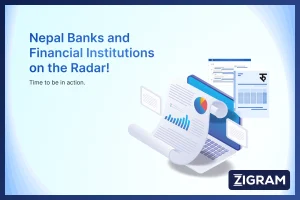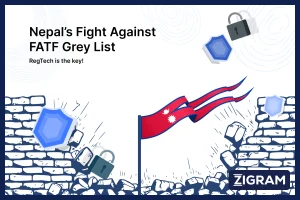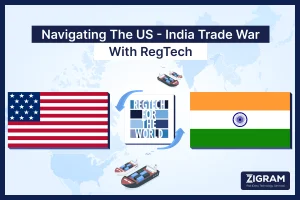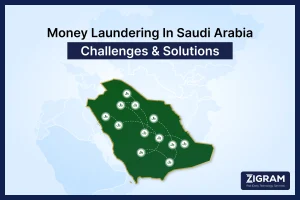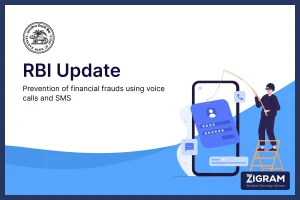The year 2024 has been pivotal for global compliance, with major elections across over 50 countries—including the U.S., UK, India, Poland, and Bangladesh—introducing substantial shifts in political landscapes and new challenges for financial institutions, especially in managing Politically Exposed Persons (PEPs). With over 75,000 individuals newly classified as PEPs, the compliance landscape has grown increasingly complex, demanding advanced screening and risk management solutions. As millions of voters worldwide participated in national, parliamentary, and local elections, financial institutions face heightened compliance risks due to the high-profile roles and significant resource access of PEPs, who inherently carry greater risks of bribery, corruption, and money laundering.

The surge in PEPs underscores the need for robust compliance strategies, particularly in anti-money laundering (AML) and fraud prevention. For instance, the UK’s July election brought political shifts shaped by economic and nationalist concerns, prompting financial institutions to realign compliance practices in response to evolving regulatory demands in the UK’s international relations, EU policies, and anti-corruption measures. Similarly, India’s June election saw the re-election of the Bhartiya Janata Party (BJP), reinforcing a nationalist agenda with implications for financial transparency and cross-border transactions, thereby increasing the need for stringent AML compliance.
As the U.S. approaches its November 5 election amid a polarized political climate, compliance professionals are closely monitoring the potential regulatory impact on AML standards, sanctions, and international alliances, preparing financial institutions to respond swiftly to the changes that could follow.
Keep yourself updated on PEP news and events, follow us on LinkedIn
Who Are PEPs? Why Are They High-Risk?
Politically Exposed Persons (PEPs) are defined as individuals holding prominent public functions, such as heads of state, high-ranking officials, and their close associates or family members. Due to their significant influence and access to resources, PEPs are at a heightened risk for engaging in financial crimes, including bribery, corruption, and money laundering. To mitigate these risks, global anti-money laundering (AML) regulations—such as the Financial Action Task Force (FATF) guidelines and the EU’s Fifth Money Laundering Directive (5MLD)—mandate enhanced due diligence (EDD) when dealing with PEPs.
Challenges In PEP Screening During Election Cycles
The 2024 election cycle, particularly in high-stakes regions like the U.S., has resulted in substantial changes to global PEP lists. Election seasons often lead to political figures transitioning in and out of key roles, adding complexity to screening processes. As these shifts occur, it is essential for financial institutions to maintain accurate, current PEP lists to avoid missing high-risk individuals or burdening compliance teams with false positives.
The Growing Complexity Of PEP Screening
Tracking PEP status has become increasingly challenging as political figures frequently change roles during elections. The 2024 elections are expected to bring about significant updates to global PEP lists, necessitating continuous monitoring. In today’s fast-paced and digitally driven environment, relying solely on manual PEP screening methods is no longer sufficient; these methods are often outdated, inefficient, and prone to inaccuracies. Financial institutions must adopt advanced screening solutions that allow for real-time updates and enhanced accuracy, reducing the likelihood of false positives and ensuring that compliance teams are not overwhelmed.
Related Read: What Are PEPs? Definitions, Requirements, And Types
Compliance Challenges: Managing PEP Risks Amid Political Transitions
The 2024 wave of elections brings significant compliance challenges for financial institutions, as new officeholders in numerous countries reshape the landscape of PEP-related risks. Many compliance teams have proactively strengthened their processes to meet these evolving needs, but challenges remain:
• Increased Compliance Burden
Compliance teams face a heavy load, as 61% of firms report increased risk-aversion strategies around PEPs, applying stricter EDD at onboarding and ongoing monitoring. Despite these efforts, only 25% of firms feel their current technology can manage the surge in PEP data this year.
• Fluid Political Landscapes
With numerous political transitions, firms need agile screening frameworks that can adapt to the fluid status of PEPs across jurisdictions.
• Manual Process Limitations
Manual screening is increasingly viewed as inadequate. Many firms are turning to AI-driven technology for more efficient, accurate PEP management, reducing the risks associated with reliance on outdated or incomplete data.
• Complexity in PEP Classifications Across Jurisdictions
PEP classifications differ significantly across countries. For example, the U.S. classifies numerous local-level officials as PEPs due to its decentralized structure, while countries like the UK centralize this designation at the national level. Compliance teams must adapt their PEP management systems to each jurisdiction’s unique demands, ensuring accuracy without operational friction.
Related Read: Which PEP Definition To Follow: Global Or Local?
The Role Of PEP Screening In Fraud Prevention
Effective PEP screening is a critical tool in preventing financial fraud and ensuring compliance with AML regulations. Regulatory authorities mandate firms to evaluate each PEP’s risk profile, considering potential involvement in financial crimes. Core elements of PEP screening include:
• Comprehensive Databases
Access to updated PEP databases, including names, aliases, family members, and associates, is essential for thorough screening.
• Continuous Monitoring
Given the rapid pace of political change, continuous monitoring is necessary to keep track of shifts in PEP status, especially during election cycles.
• Enhanced Due Diligence
Institutions must scrutinize a PEP’s financial sources, transactions, and patterns that could indicate misconduct.
Why PEP Screening Is Essential During Election Cycles?
Election cycles heighten the importance of Politically Exposed Person (PEP) screening due to various critical factors:
- Evolving Political Landscapes: As elections unfold in key regions like the U.S., institutions must rely on real-time data to accurately track high-risk individuals, adapting to the rapid changes in PEP statuses.
- Dynamic Political Shifts: Real-time updates to PEP lists are essential during elections as officials frequently enter or leave positions of influence. This agility helps capture all relevant individuals and minimizes the risk of overlooking high-risk clients.
- Regulatory Compliance: Enhanced due diligence (EDD) is mandatory when dealing with PEPs. Failure to conduct comprehensive screening can result in substantial fines, reputational harm, and legal consequences, underscoring the importance of maintaining stringent compliance
- Regulatory Pressures: Compliance teams face mounting pressure to adhere to strict AML and PEP requirements, particularly as new directives expand screening obligations to include family members and close associates of PEPs.
Looking for the best screening tool? Check Out ZIGRAM’s Prescreening.io
5 Key Compliance Strategies For PEP Screening In 2024
The 2024 election cycle introduces unique challenges, prompting financial institutions to adopt advanced compliance strategies. Compliance teams must prioritize specific areas to strengthen PEP management, reduce fraud risks, and maintain regulatory alignment:
1. Advanced Technology Integration For Real-Time PEP Monitoring
With high-frequency political transitions, AI-driven monitoring is essential for real-time updates in PEP lists. Leveraging advanced technology enables financial institutions to reduce outdated data risks and respond to shifting regulatory standards quickly. This responsive approach not only minimizes false positives but also enhances screening efficiency, ensuring that compliance processes remain accurate and agile.
2. Customized Cross-Jurisdictional Compliance
PEP classifications and AML requirements vary significantly across regions. For instance:
- Decentralized Systems: In the U.S., many local-level officials are classified as PEPs, which adds complexity to the screening process.
- Centralized Systems: In the UK, PEP status is centralized at the national level, making cross-border compliance simpler. Compliance teams are enhancing their systems to adapt screening methods based on local political structures, thereby minimizing friction and improving compliance effectiveness across different jurisdictions.
3. Enhanced Fraud Prevention Protocols
Political transitions and increased insider threats in sensitive regions have amplified the need for robust fraud detection. AI-driven fraud prevention tools are helping institutions address compliance challenges tied to the election cycle. These tools proactively identify suspicious activity, allowing firms to mitigate fraud risks associated with high-profile individuals, political donations, and government contracts.
4. Corruption Monitoring
Corruption, closely associated with PEP-related risks, requires a vigilant approach. Key indicators include:
- Suspicious Political Donations: Large, opaque donations can signal attempts to influence political decisions.
- Concealed Business Relationships: Hidden ties between political figures and businesses may indicate corruption.
- Disproportionate Government Payments: Unusual spending that benefits politically connected entities is often a red flag.
Compliance teams should implement continuous monitoring to identify red flags and adjust risk assessments for jurisdictions with active elections, especially during periods of heightened political activity.
5. PEP Declassification, Offboarding, and Data Partnerships
Effective PEP management goes beyond identification and monitoring; it requires structured offboarding protocols and strategic data partnerships. When PEPs leave public roles or lose influence, financial institutions can safely declassify them based on defined criteria—such as time since departure and current influence—allowing resources to focus on high-risk individuals. This approach streamlines compliance, reduces false positives, and enhances operational efficiency. Additionally, partnerships with government and industry bodies provide timely intelligence on emerging risks and evasion techniques, enabling institutions to proactively adjust compliance strategies and stay aligned with evolving regulatory demands in a dynamic landscape.
Conclusion: Strengthening Compliance Amid Political Shifts
The 2024 elections have underscored the importance of robust, technology-driven compliance frameworks. Financial institutions can mitigate PEP-related risks by adopting advanced screening technologies and maintaining agile compliance processes. Solutions like ZIGRAM’s Prescreening.io offer real-time, automated screening tools tailored to the demands of high-volume election cycles, empowering institutions to stay compliant and secure in an evolving regulatory environment.
ZIGRAM specializes in comprehensive risk management and PEP screening solutions that help institutions remain secure and compliant. Key offerings include:
Contact us today for a FREE DEMO and experience how ZIGRAM’s solutions can transform your compliance approach in this dynamic regulatory environment.
Contact us now and get a FREE DEMO!
- #PEPs
- #USelections2024
- #PEPScreening
- #FinancialCrime
- #AMLCFT

